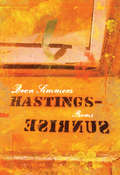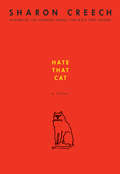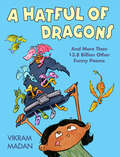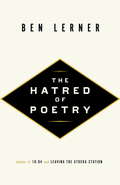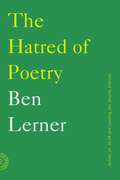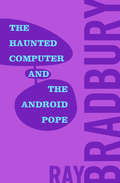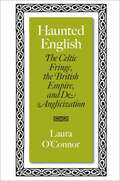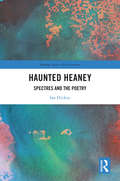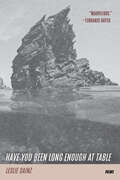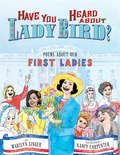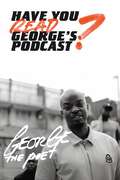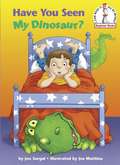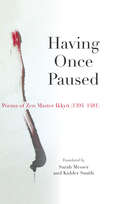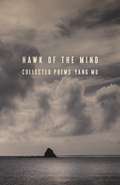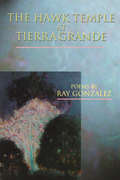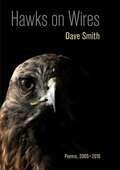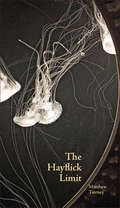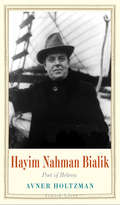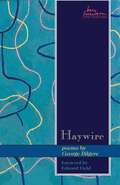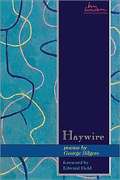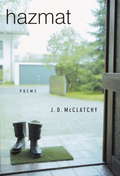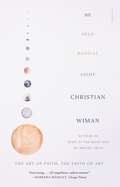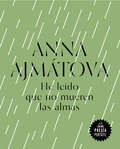- Table View
- List View
Hastings-Sunrise
by Bren SimmersHastings-Sunrise is a love letter to a fleeting place and time. Bren Simmers's second collection captures her old East Vancouver neighbourhood in the midst of upheaval. As it is colonized by tides of matching plaid and diners serving pulled-pork pancakes, condo developments replace the small businesses and cheap rentals that once gave the area its charm.Much like opening a set of nesting dolls, leafing through the collection exposes further layers of depth and intimacy. Within the context of cultural change, Simmers explores the meaning to be found in everyday things: the making of a home, the life built from daily routines. At the same time, she reveals the dissonance that can occur between personal and large-scale change: "Twitter feed of melting sea ice, / colony collapse / while we picnic under pink ribbons, / kiss again like we mean it."Throughout the collection, the poet's eye unfailingly lights on the perfect details to evoke a scene: "On Mr. Donair's spit, / the earth rotates. Papal smoke emits / from Polonia Sausage, semis shunt / downtown." Visual poems forming maps of Christmas lights and autumn colours further bring the Hastings-Sunrise neighbourhood to life, illustrating the interweaving of human and natural spaces and locating "home" in between.Like a tree clothed in multicoloured yarn or a miniature house filled with free books, Hastings-Sunrise is a gift to readers, beautiful in its simplicity.
Hate That Cat
by Sharon CreechJack<P><P> Room 204—Miss Stretchberry <P> February 25<P> Today the fat black cat<P> up in the tree by the bus stop<P> dropped a nut on my head<P> thunk<P> and when I yelled at it<P> that fat black cat said<P> Murr-mee-urrr<P> in a <P> nasty<P> spiteful<P> way.<P> I hate that cat.<P> This is the story of <P> Jack<P> words<P> sounds<P> silence<P> teacher<P> and cat.
A Hatful of Dragons: And More than 13.8 Billion Other Funny Poems
by Vikram MadanKirkus Reviews Best BookTexas Bluebonnet 2021-2022 Master ListNew York Public Library Best BookDenver Public Library&’s Best and Brightest 2020 Poetry ListALSC Summer Reading SelectionSouth Dakota Prairie Bloom Award FinalistIdeal for fans of Jack Prelutsky and Shel Silverstein, this collection of hilarious poems is perfect for any young reader who likes to read — and laugh!This funny poetry book is full of unusual characters: panda and pangolin musicians, mail-order eggs that hatch dinosaurs (surprise!), ten aliens with a garden-gnome pal, a robot uncle, lots and lots of dragons, and a professor who uses his Page Machine to travel to multiple pages within the book. Vikram Madan's ingenious poems take many forms, from limerick to rebus to a fill-in-the-blank poem that offers more than 13.8 billion funny combinations. All feature clever wordplay, impeccable rhythm and rhyme, and riotous punchlines. This is a quirky collection of poems that readers will laugh their way through again and again.
The Hatred of Poetry
by Ben LernerNovelist and poet Ben Lerner argues that our hatred of poetry is ultimately a sign of its continued relevance.Poetry. Perhaps Marianne Moore said it best: "I, too, dislike it." What other art takes its marginality as a given, and is so widely bemoaned even by its practitioners? Ben Lerner writes, "Many more people agree they hate poetry than can agree what poetry is. I, too, dislike it and have largely organized my life around it and do not experience that as a contradiction because poetry and the hatred of poetry are inextricable in ways it is my purpose to explore."In this inventive and plain-spoken essay, Lerner takes the hatred of poetry as the starting point of his defence of the art. He examines both poetry's greatest haters (beginning with Plato, who famously claimed that an ideal city had no place for poets, who would only corrupt and mislead the young) and its greatest practitioners, providing inspired close-readings of Keats, Dickinson, Whitman, and others. Throughout, he attempts to explain the noble failure at the heart of every poem: the impulse to launch the experience of an individual into a timeless, communal existence. In The Hatred of Poetry, Lerner has crafted an entertaining, personal, and entirely original examination of a vocation no less essential for being impossible.
The Hatred Of Poetry
by Ben LernerNo art has been denounced as often as poetry. It's even bemoaned by poets: "I, too, dislike it," wrote Marianne Moore. "Many more people agree they hate poetry," Ben Lerner writes, "than can agree what poetry is. I, too, dislike it and have largely organized my life around it and do not experience that as a contradiction because poetry and the hatred of poetry are inextricable in ways it is my purpose to explore." In this inventive and lucid essay, Lerner takes the hatred of poetry as the starting point of his defense of the art. He examines poetry's greatest haters (beginning with Plato's famous claim that an ideal city had no place for poets, who would only corrupt and mislead the young) and both its greatest and worst practitioners, providing inspired close readings of Keats, Dickinson, McGonagall, Whitman, and others. Throughout, he attempts to explain the noble failure at the heart of every truly great and truly horrible poem: the impulse to launch the experience of an individual into a timeless communal existence. In The Hatred of Poetry, Lerner has crafted an entertaining, personal, and entirely original examination of a vocation no less essential for being impossible.
The Haunted Computer and the Android Pope
by Ray BradburyRejoice in the strange and the ordinary in this contemplative collection of poetry from the celebrated author of Fahrenheit 451.One of the most well-known figures in modern fantasy and science fiction, often credited for heralding the genre into the mainstream, Ray Bradbury delights readers time and time again with writing that pushes the boundaries of reality. In this outstanding collection, Bradbury delivers poem after poem full of hope, fear, philosophy and faith. As in his work of speculative fiction, Bradbury&’s unique perspective on humanity graces every page.From technology to Ty Cobb, strawberry shortcake and death, this selection delivers some of Bradbury&’s best. Some of his most beloved poetry, including &“They Have Not Seen the Stars,&” &“This Attic Where the Meadow Greens,&” &“There Are No Ghosts in Catholic Spain,&” &“Farewell Summer,&” &“Once the Years Were Numerous and the Funerals Few,&” &“Doing Is Being,&” and &“We Are The Reliquaries of Lost Time,&” is featured.Humorous, thoughtful, and every bit as out of this world as readers have come to expect from the legend, this is a must-have for collectors and new readers alike.&“Let us now praise Ray Bradbury, the uncrowned poet laureate of science fiction.&”—The Times
Haunted English: The Celtic Fringe, the British Empire, and De-Anglicization
by Laura O'ConnorHaunted English explores the role of language in colonization and decolonization by examining how Anglo-Celtic modernists W. B. Yeats, Hugh MacDiarmid, and Marianne Moore "de-Anglicize" their literary vernaculars. Laura O'Connor demonstrates how the poets’ struggles with and through the colonial tongue are discernible in their signature styles, using aspects of those styles to theorize the dynamics of linguistic imperialism—as both a distinct process and an integral part of cultural imperialism. O'Connor argues that the advance of the English Pale and the accompanying translation of the receding Gaelic culture into a romanticized Celtic Fringe represents multilingual British culture as if it were exclusively English-speaking and yet registers, on a subliminal level, some of the cultural losses entailed by English-only Anglicization. Taking the fin-de-siècle movements of the Gaelic revival and the Irish Literary Renaissance as her point of departure, O'Connor examines the effort to undo cultural cringe through language and literary activism.
Haunted English: The Celtic Fringe, the British Empire, and De-Anglicization
by Laura O'ConnorA study of how English’s colonial history inflects the literary vernaculars of Anglo-Celtic modernists W. B. Yeats, Hugh MacDiarmid, and Marianne Moore.Haunted English explores the role of language in colonization and decolonization by examining how Anglo-Celtic modernists W. B. Yeats, Hugh MacDiarmid, and Marianne Moore “de-Anglicize” their literary vernaculars. Laura O’Connor demonstrates how the poets’ struggles with and through the colonial tongue are discernible in their signature styles, using aspects of those styles to theorize the dynamics of linguistic imperialism—as both a distinct process and an integral part of cultural imperialism.O’Connor argues that the advance of the English Pale and the accompanying translation of the receding Gaelic culture into a romanticized Celtic Fringe represents multilingual British culture as if it were exclusively English-speaking and yet registers, on a subliminal level, some of the cultural losses entailed by English-only Anglicization. Taking the fin-de-siècle movements of the Gaelic revival and the Irish Literary Renaissance as her point of departure, O’Connor examines the effort to undo cultural cringe through language and literary activism.“This is a promising contribution to an expanding discipline.” —Paul Shanks, Comparative Literature Studies“Laura O’Connor has written a distinguished and groundbreaking study.” —Murray Pittock, Clio“Smart, engaging, and intellectually provocative.” —Rob Doggett, Victorian Studies“An often brilliant account of how three modernist poetries contributed to the global decline of Anglocentrism . . . Essential for anyone looking for fresh interpretations of Yeats, MacDiarmid, or Moore, it will also interest readers concerned with the promises and challenges of writing transnational literary criticism.” —Matthew Hart, Modernism/Modernity“Insightful, scintillating, attentive to every nuance . . . O’Connor’s study will reward greatly anyone interested in the critical revivalism that is both her subject and her inheritance.” —Gregory Castle, Irish Literary Supplement“Valuable and original work that participates in some of the most exciting and forward-looking trends in current Irish and literary studies.” —Marjorie Howes, Boston College, author of Yeats’s Nations: Gender, Class, and Irishness
Haunted Heaney: Spectres and the Poetry (Routledge Studies in Irish Literature)
by Ian HickeyHaunted Heaney: Spectres and the Poetry looks at the ghosts and spectres present within the poetry of the Nobel Prize winning poet Seamus Heaney. Covering Heaney’s work from his first collection, Death of a Naturalist, to his final collection, Human Chain, this volume analyses Heaney’s poetry through the lens of hauntology as presented by Jacques Derrida in Specters of Marx. This book presents spectres and ghosts not in the conventional sense, as purely supernatural, physical manifestations haunting a place, but instead as having a non-physical presence. In this sense past cultures, societies, texts, poets, and memories are examined as having a spectral influence on Heaney’s writing. His work is indebted to hauntedness as the past in all its forms sutures itself within the present of his thinking and writing, and our reading of the poetry. Topics for discussion include the Norse spectres in the early poetry; British colonialism and its haunting influence on the poet; a renewed look at the bog poems as being influenced by the spectral; the classical influence of Virgil and Dante; and a reading of ‘Route 110’ that incorporates the major instances of Heaney’s career into a singular poem. The book also incorporates Heaney’s prose work and interviews into the discussion and uses these works as a metacommentary to the poetry offering a deeper insight into the mind of one of Ireland’s greatest writers.
Have You Been Long Enough At Table
by Leslie Sainz“Marvelous.”—Terrance Hayes Taking its title from Hemingway’s The Old Man and the Sea, Leslie Sainz’s Have You Been Long Enough at Table explores the personal and historical tragedies of the Cuban American experience through a distinctly feminine lens. Formally diverse with echoes of Spanish throughout, this debut collection critiques power and patriarchy as weaponized by the governments of the United States and the Republic of Cuba. In investigating the realities of displacement and inherited exile, Sainz honors her imagined past, present, and future as a result of the “revolution within the revolution”—the emancipation of Cuban women. Through lyric and associative meditations, Sainz anatomizes the unique grief of immigrant daughters, as her speakers discover how family can be a microcosm of the very violence that displaced them. What emerges is a spiritual blueprint for disinheritance, radical self-determination, and the nuanced examinations of myth, ritual, and resistance.
Have You Heard About Lady Bird?: Poems About Our First Ladies
by Marilyn SingerThe role of First Lady has been defined differently by each woman who's held it, but all of them left an impact on our nation as partner of the commander in chief. Incisive poetry by Marilyn Singer and energetic art by Nancy Carpenter provide a fascinating glimpse into the lives of women-from Martha Washington to Eleanor Roosevelt to Lady Bird Johnson-who variously embraced the position and shied away from it, craved the spotlight and fiercely guarded their privacy, took controversial stands and championed for the status quo. Detailed back matter includes short biographies, quotations, and more.
Have You Read George’s Podcast?
by George the Poet'There's something special about it: the storytelling is unique, so exciting, so kinetic. Even though it's in your ears, you feel like you're walking along with George.' -- Candice Carty-Williams'Have You Read George's Podcast? is a collection of the scripts of 28 of his podcasts. Even on the page, they are evidently brilliant, creating a shifting, shimmering world that remains anchored in the big questions of history, empire and identity that form the tec tonic plates of George's imagination.' -- Sunday Times '[George's podcast] blows through the medium's newly established boundaries, offering an experience as innovative as it is undefinable.' -- New Yorker'A genre-defying piece of audio that pushes the limits of what a podcast can be.' -- New York Times'There can't be many people out there who don't think George the Poet is a bit of a genius.' -- Charlie Phillips, Guardian***For fans of the critically-acclaimed, award-winning podcast Have You Heard George's Podcast?, a stunning collection of the scripts of the podcast, plus bonus material from George the Poet.There's nothing quite like Have You Heard George's Podcast?. Listeners and critics have struggled to fit it into just one neat category, jumping as it does between autobiography, fiction and social commentary, often in a single episode - and virtually all of it performed in spellbinding rhyming verse. And now the complete scripts of Chapters One, Two and Three are available to enjoy, along with new writing by George. This collection allows fans to read (and re-read) his words, and with new extra insights and commentary on each episode and Chapter. In the book, just as in the podcast, George The Poet delivers an incredibly powerful and unique perspective on politics, modern society, history and current affairs through the art of storytelling, speculative fiction and spoken word. The book also offers a deeply personal summation of George's observations, experiences and vision for the future. Whilst his narrative takes us all around the world, the ultimate ambition is to empower the next generation, starting with his community.
Have You Seen My Dinosaur? (Beginner Books)
by Jon Surgal Joe MathieuA five-year-old boy searches high and low for his missing dinosaur, and the people he asks for help do not believe such a creature actually exists.
Having Once Paused: Poems Of Zen Master Ikkyu (1394-1481)
by Sarah Messer Ikkyu Sojun Kidder SmithThe influence of Zen Master Ikkyu (1394-1481) permeates the full field of medieval Japanese aesthetics. Though best known as a poet, he was central to the shaping and reshaping of practices in calligraphy, Noh theater, tea ceremony, and rock gardening, all of which now define Japan's sense of its cultural tradition. Ikkyu is unique in Zen for letting his love of all appearance occupy him until it destroys any possibility for safety or seclusion. In his poetry, he turns the eye of enlightenment to all phenomena: politics, pine trees, hard meditation practice, sex, wine. A lifelong outsider to religious establishments, Ikkyu nonetheless accepted Imperial command to rebuild his home temple, Daitoku-ji, destroyed in the civil wars. He died before that project was complete. The poems in this collection express the unborn bliss of Ikkyu's realization and equally his devastation at the horrors of this world. They are peopled with ancient Chinese poets, cantankerous Japanese Zen Masters, contemporary warlords, and his lover Mori, a blind musician who lived with Ikkyu the last eleven years of his life. All of this is his Buddhism. His awakening outshines the small idols of reason, emotion, self, desire, doctrine, even of Buddhism itself.
Hawk of the Mind: Collected Poems (Modern Chinese Literature from Taiwan)
by Yang MuYang Mu is a towering figure in modern Chinese poetry. His poetic voice is subtle and lyrical, and his work is rich with precise images and crystalline thoughts invoking temporality and remembrance. A bold innovator and superb craftsman, he elegantly combines cosmopolitan experimentation with poetic forms and an allusive reverence for classical Chinese poetry while remaining rooted in his native Taiwan and its colonial history.Hawk of the Mind is a comprehensive collection of Yang Mu’s poetry that presents crucial works from the many stages of his long creative career, rendered into English by a team of distinguished translators. It conveys the complexity and beauty of Yang Mu’s work in a stately and lucid English poetic register that displays his ability to range from meditative to playful and colloquial to archaic. The volume includes an editor’s introduction and definitive commentary that offer insights into the poet’s major themes and motifs, explaining how he draws on deep engagement with Chinese and Western literary traditions, history, and art as well as mythology, philosophy, and music and a profound love for the natural world to create a nuanced and multifaceted artistic universe. It also contains translations of prefaces and afterwords written by Yang Mu for collections of his poetry. Hawk of the Mind demonstrates the breadth and depth of Yang Mu’s oeuvre, illustrating the distinctive style and affective power of a great poet.
The Hawk Temple at Tierra Grande (American Poets Continuum #Vol. 72)
by Ray GonzalezKnown for his superrealism and magical images born of the imagery of the Chicano/South Western culture, Ray Gonzalez gives new imagery and intensity to the mystery and common miracles of that culture, the passionate reclamation of identity.Ray Gonzalez is a poet, essayist, and editor born in El Paso, Texas. He is the author of five books of poetry, including The Heat of Arrivals (BOA 1996), which won the 1997 Josephine Miles Book Award for Excellence in Literature, and Cabato Sentora (BOA 1999). He is the editor of twelve anthologies and serves as Poetry Editor of The Bloomsbury Review.Also available by Ray Gonzalez: The Heat of Arrivals TP $12.50, 1-880238-39-X o CUSA Cabato Sentora TP $12.50, 1-880238-70-5 o CUSA
Hawks on Wires: Poems, 2005-2010
by Dave SmithDave Smith's sixteenth poetry collection chronicles the arc of almost sixty years living in the American South. From dusty sawmills to the ubiquitous Waffle House, Hawks on Wires stages both mortal and comic dramas that speak to the poet's autumnal acceptance of himself and the South.Poems of growing up engaged with the people of the coast and woodlands -- boatmen, hunters, crabbers, sawyers, and tough-mouthed waitresses -- celebrate the once strong but now tenuous threads of community.Traveling through the latter twentieth century, Smith presents matters of family, sex, and race during a turbulent and historic era in southern history. Assassinations, withdrawal of religious prohibitions, violent cultural convulsions, and even the diminished meaning of the word "southern" shake the poet's personal identity.Smith uses the language of an ordinary man seeking meaning as the memory of events, carried over a lifetime, now begs for explanation. Despite the inevitable displacements and disappointments of identity, which remain mysterious, Smith finds optimism in life.
The Hayflick Limit
by Matthew TierneyTo be human is to cope with knowing. In the early 1960s, Leonard Hayflick determined that healthy cells can divide only a finite number of times. Known as the Hayflick Limit, it sets an unsurpassable lifespan for our species at just over 120 years. Shifting focus between the limits of the microscope and the limits of the telescope, Matthew Tierney gives voice to a range of characters who scrape out meaning in a carnivalesque universe, one that has birthed black holes and Warner Bros. cartoons, murky market economies, murkier quantum laws, Vincent Price, Molotov cocktails, seedless grapes, Area 51 and competing Theories of Everything.
Hayim Nahman Bialik: Poet of Hebrew (Jewish Lives)
by Prof. Avner HoltzmanA moving inquiry into the dramatic life, epic success, and ultimate tragedy of the great Hebrew poet By the time he was twenty-eight, Hayim Nahman Bialik was already considered the National Hebrew Poet. He had only published a single collection, but his deeply personal poetry established a profound link between the secular and the traditional that would become paramount to a national Jewish identity in the twentieth century. When he died unexpectedly in 1934, the outpouring of grief was unprecedented, confirming him as a father figure for the Zionist movement in Palestine, and around the world. Using extensive research and elegant readings of Bialik's poems, Avner Holtzman investigates the poet's dramatic life, complex personality, beloved verse, and continued popularity. This clear-eyed and thorough biography explores how Bialik overcame intense personal struggles to become a charismatic literary leader at the core of modern Hebrew culture.
Haywire: Poems (Swenson Poetry Award)
by George BilgereTenth annual winner of the May Swenson Poetry Award, Haywire is a well-polished collection from a highly accomplished poet. With humor, compassion, and an unflinching eye, Bilgere explores the human condition in accessible lines and a magician's way with language. In images bright and dark, tangible and immanent, Bilgere brings us time after time to the inner reaches of a contemporary life. In subjects ranging from adolescent agony to the loss of parents to the comic pain of middle age, he finds no reason to turn away his gaze, and ultimately no reason not to define himself in joy Haywire was chosen for the Swenson Award by poet Edward Field, winner of numerous awards and a personal friend of the late May Swenson. Field describes the book this way. "This poet, you knew from his very first lines, didn’t fall for anything phony—his own language is irresistibly no-bullshit down to earth, even sassy."
Haywire
by George BilgereTenth annual winner of the May Swenson Poetry Award, Haywire is a well-polished collection from a highly accomplished poet. With humor, compassion, and an unflinching eye, Bilgere explores the human condition in accessible lines and a magician's way with language. In images bright and dark, tangible and immanent, Bilgere brings us time after time to the inner reaches of a contemporary life. In subjects ranging from adolescent agony to the loss of parents to the comic pain of middle age, he finds no reason to turn away his gaze, and ultimately no reason not to define himself in joyHaywire was chosen for the Swenson Award by poet Edward Field, winner of numerous awards and a personal friend of the late May Swenson. Field describes the book this way. "This poet, you knew from his very first lines, didn't fall for anything phony--his own language is irresistibly no-bullshit down to earth, even sassy."
Hazmat
by J. D. McClatchyHAZMAT, meaning "hazardous material," is an abbreviation familiar from signs at the entrances to long dark tunnels or on the sides of suspicious containers. Here, in a series of stunning poems, J. D. McClatchy examines the first hazmat we all encounter: our own bodies. The virtuosic "Tattoos" meditates on why we decorate the body's surface, while other poems plunge daringly inward, capturing the way in which everything that makes us human-desire and decay, need and curiosity, the jarring sense of loss and mortality-hovers in the flesh. In the midst of it all is the heart, its treacheries, its gnawing grievances, its boundless capacities. With their stark titles ("Cancer," "Feces," "Jihad"), McClatchy's poems work dazzling variations on this book's theme: how we live with the fact that we will die. Crowned by the twenty-part sequence "Motets," which deals out an exquisite hand of emotional crises, this collection brings us a sumptuous weave of impassioned thought and clear-sighted feeling. Holding up a powerful poetic mirror, McClatchy shows us our very selves in a chilling series of images: the melodrama of the body being played out, as it must be, in the theater of the spirit.
He Held Radical Light: The Art of Faith, the Faith of Art
by Christian WimanA moving meditation on memory, oblivion, and eternity by one of our most celebrated poetsWhat is it we want when we can’t stop wanting? And how do we make that hunger productive and vital rather than corrosive and destructive? These are the questions that animate Christian Wiman as he explores the relationships between art and faith, death and fame, heaven and oblivion. Above all, He Held Radical Light is a love letter to poetry, filled with moving, surprising, and sometimes funny encounters with the poets Wiman has known. Seamus Heaney opens a suddenly intimate conversation about faith; Mary Oliver puts half of a dead pigeon in her pocket; A. R. Ammons stands up in front of an audience and refuses to read. He Held Radical Light is as urgent and intense as it is lively and entertaining—a sharp sequel to Wiman’s earlier memoir, My Bright Abyss.
He leído que no mueren las almas
by Anna AjmátovaEl presente volumen de la colección «Poesía portátil» es una antología de la obra poética de Anna Ajmátova, una de las principales voces de la poesía rusa de principios del siglo XX. <P><P>Una obra maestra contra la represión y el terror estalinista. La obra de Anna Ajmátova (1889-1966), prohibida durante muchos años en Rusia, es uno de los principales testimonios literarios de la turbulenta historia del país. <P>En 1934 su primer marido, el también poeta Gumilev, fue acusado de actividades contrarrevolucionarias y murió fusilado. Muchos de sus amigos poetas fueron enviados a los gulags estalinianos y Ajmátova vio cómo la mayoría de sus seres queridos morían, eran condenados o enviados al exilio. <P><P>Entre ellos, su único hijo. Tras años en el centro de la diana del terror estalinista, Lev fue encarcelado en 1938 acusado de terrorismo. Durante diecisiete meses, Ajmátova hizo cola todas las mañanas ante la cárcel de Leningrado para saber si seguía con vida. <P>De esta experiencia nacería uno de sus poemarios más hermosos: Réquiem, recogido en este libro y publicado en 1963, el mismo año en que se le concedió el Premio Internacional de Literatura. <P>Esta selección, en la versión del Premio Nacional de Traducción José Luís Reina Palazón, también incluye otros poemas en los que Ajmátova desnuda el espíritu ruso mientras canta al desamor, al paso del tiempo y al dolor de ver la propia patria sometida al terror más feroz. -------«- ¿Y usted puede describir esto? <P>Y yo dije:- Puedo. <P>Entonces algo como una sonrisa resbaló en aquello que una vez había sido su rostro.»-------
He leído que no mueren las almas (Flash Poesía #Volumen)
by Anna AjmátovaEl presente volumen de la colección «Poesía portátil» es una antología de la obra poética de Anna Ajmátova, una de las principales voces de la poesía rusa de principios del siglo XX. Una obra maestra contra la represión y el terror estalinista. La obra de Anna Ajmátova (1889-1966), prohibida durante muchos años en Rusia, es uno de los principales testimonios literarios de la turbulenta historia del país. En 1934 su primer marido, el también poeta Gumilev, fue acusado de actividades contrarrevolucionarias y murió fusilado. Muchos de sus amigos poetas fueron enviados a los gulags estalinianos y Ajmátova vio cómo la mayoría de sus seres queridos morían, eran condenados o enviados al exilio. Entre ellos, su único hijo. Tras años en el centro de la diana del terror estalinista, Lev fue encarcelado en 1938 acusado de terrorismo. Durante diecisiete meses, Ajmátova hizo cola todas las mañanas ante la cárcel de Leningrado para saber si seguía con vida. De esta experiencia nacería uno de sus poemarios más hermosos: Réquiem, recogido en este libro y publicado en 1963, el mismo año en que se le concedió el Premio Internacional de Literatura. Esta selección, en la versión del Premio Nacional de Traducción José Luís Reina Palazón, también incluye otros poemas en los que Ajmátova desnuda el espíritu ruso mientras canta al desamor, al paso del tiempo y al dolor de ver la propia patria sometida al terror más feroz. -------«- ¿Y usted puede describir esto?Y yo dije:- Puedo.Entonces algo como una sonrisa resbaló en aquello que una vez había sido su rostro.»-------
